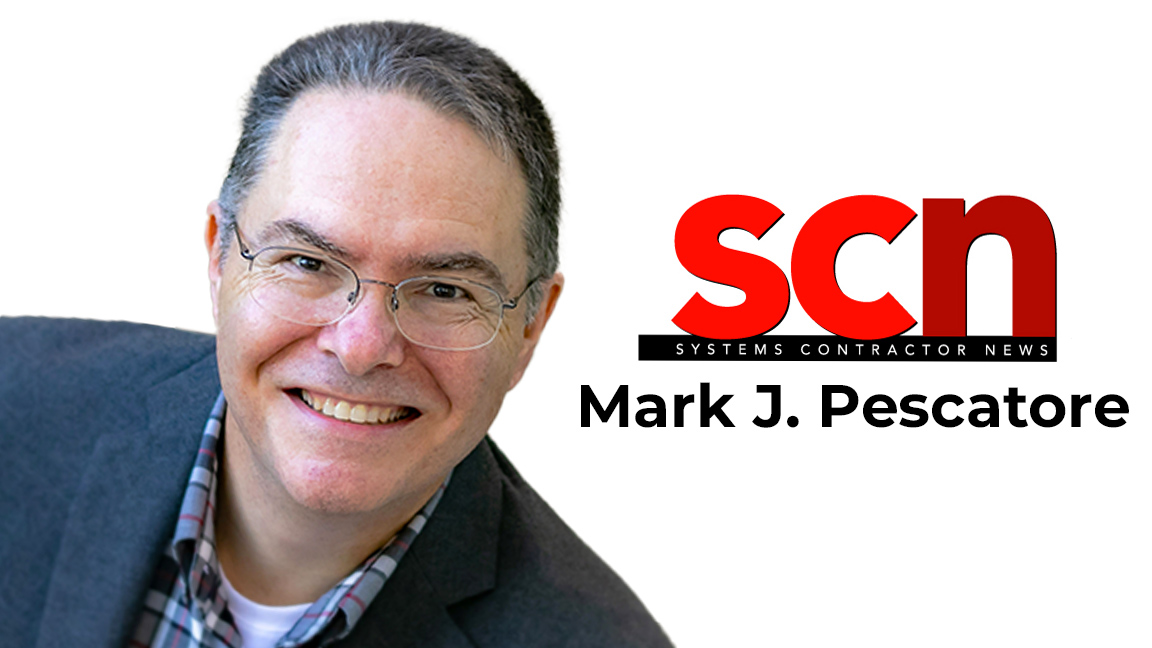Fake Out And Run
Follow us
Add us as a preferred source on Google
Get the AVNetwork Newsletter
A daily selection of features, industry news, and analysis for AV/IT professionals. Sign up below.
By submitting your information you agree to the Terms & Conditions and Privacy Policy and are aged 16 or over.
You are now subscribed
Your newsletter sign-up was successful
An account already exists for this email address, please log in.
Subscribe to our newsletter
- When you watch a great running back carry the football, you can't help but be amazed at his ability to avoid tacklers, see holes and move the football through paths no one on the defense was able to anticipate. Unless your football team has a massive line that can constantly push the ball up the middle or you have a quarterback that can consistently out-throw the defense through the air, the running back will get the attention and earn the big bucks.
- So, what does football have to do with business marketing and business strategies? During the recent NSCA Fall Business Conference held annually in Tucson, AZ, many of the discussions and presentations centered on the rapidly changing business environment faced by today's top contractors and integrators. Topics like "Technology Convergence," the new "2004 Master Format," "I/P Technologies," and "Emerging Markets," left all who attended with a keen awareness that the picture of our industry is changing rapidly. If we intend to survive and prosper, we must adapt and change at an ever-accelerating pace.
- The word "commoditization" came up repeatedly in relation to many traditional products and markets that we pursue. Some traditional AV companies have been caught flat-footed in recent months and years as many products that were traditionally profitable have been commoditized. Thus, margins have plummeted. This trend is influenced by a number of forces, including the simplification and mass adoption of certain products, the lowering of prices by manufactures (as they start to recoup their initial development investment and try to maintain or increase market share), and alternative methods of procurement including the internet. Those who are lamenting the demise of margin in these kinds of markets, by and large were unable or unwilling to confront the brutal facts and implement alternative marketing and business strategies that would have positioned them to weather the downturns with little negative effect.
- Concerns about certain aspects of our traditional business being threatened by the electrical contracting industry, data contractors looking to replace revenues that disappeared as networks were built out, and box sales over the internet or through retailers dominated many conversations at the conference. These are all real threats if your business is inflexible and unwilling to change. What also became clear is that threats like these are not new, just different.
- Those businesses attending the conference who have grown consistently demonstrate a common ability to act like a football running back. They know they have threats and competition. They know that they may have to abandon a business segment they love if margins can no longer support their operational objectives. And, they understand that maintaining margins requires creating meaningful value to customers.
- Successful businesses are willing to accept that what a customer values today may become a commodity and will not be valued tomorrow. That's when the margins start to fall. Successful businesses are learning the concept of "Value Shifting." I may be coining a new phrase here, but the concept isn't really new. Just like a good running back, successful businesses break left, when conventional wisdom might indicate to break right.
- The word "entrenchment" comes to mind when I encounter companies who accept eroding margins instead of shifting efforts to new products, markets or services that customers will value and pay more for. The "Chicken Little, sky is falling" attitude has no place in business. Smart business people understand that every time a door closes, others open. The very smart business people always assume that eventually the markets and products from which they enjoy the greatest margins will erode and so they spend current efforts looking for new doors to open.
- This concept may seem simple and obvious, but it's surprising how few companies possess the will to act on their instincts rather than simply talk about it. Once again, margins are directly tied to the ability of a company to demonstrate value to its customers.
- Advances in technologies and the simplification of the user interface will continue to erode the perceived value in what integrators have to offer. If you agree with this, then you should consider implementing the concept of value shifting in your company. Many attendees at the NSCA Fall Business Conference agree that an obvious value shift for integrators is from products to services. Charging for design instead of giving it away, charging for project management, and raising prices for programming, training and system startup are among many examples.
- The same thinking can be applied to the markets your company serves. Take the time to evaluate each market considering historical margin growth or erosion. Look at the outside influences that might cause future erosion in the margins. If you are unable to identify methods to mitigate the erosion, start working on replacing the market segment or offering something new that will have a high level of value to your customers.
- Sometimes value shifting may even involve developing an entirely new customer type or market. As long as the new doors you open fit your core values and competencies, you will be enhancing the depth and strength of your business. Just remember, you heard the phrase "Value Shifting" here first.
scn Newsletter
A daily selection of the top stories for AV integrators, resellers and consultants. Sign up below.
TOPICS
